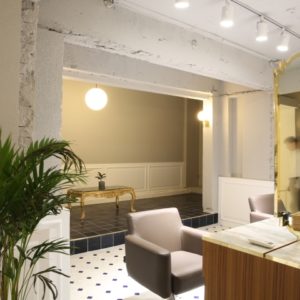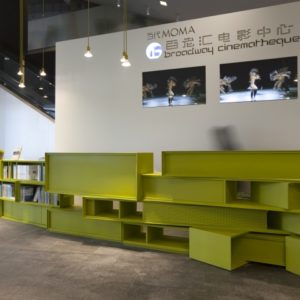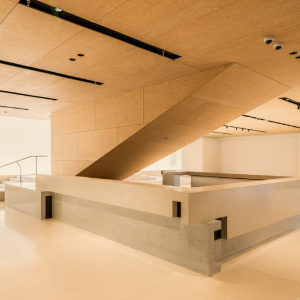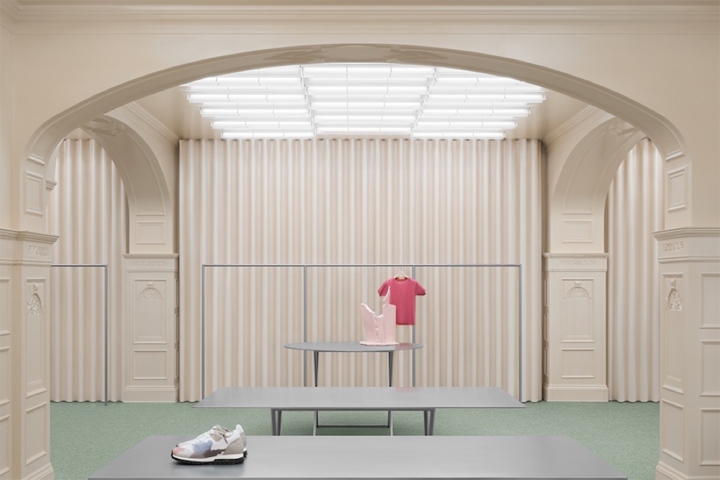
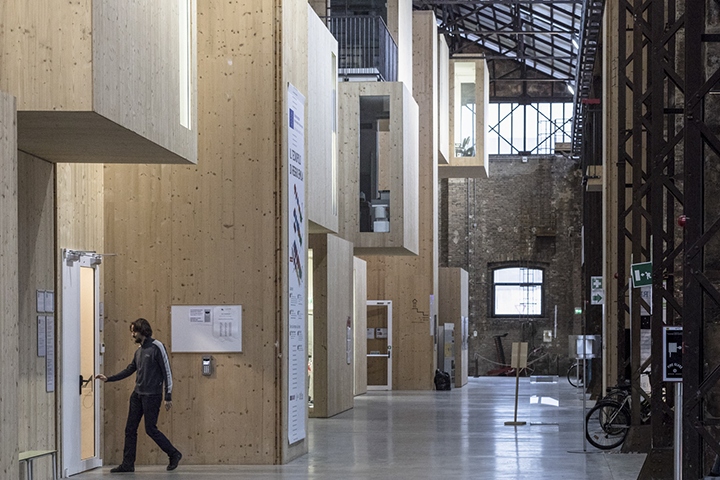

Research is the key to Andrea Oliva’s project for Shed #19—not only because this old factory was turned into a technopole for industrial investigation, but also because the architect’s proposal used research as a way of identifying the building’s possible transformations. In this case, the rich industrial history of the plant and the area is deemed essential for its refurbishment; its recovery depends on understanding its significance.
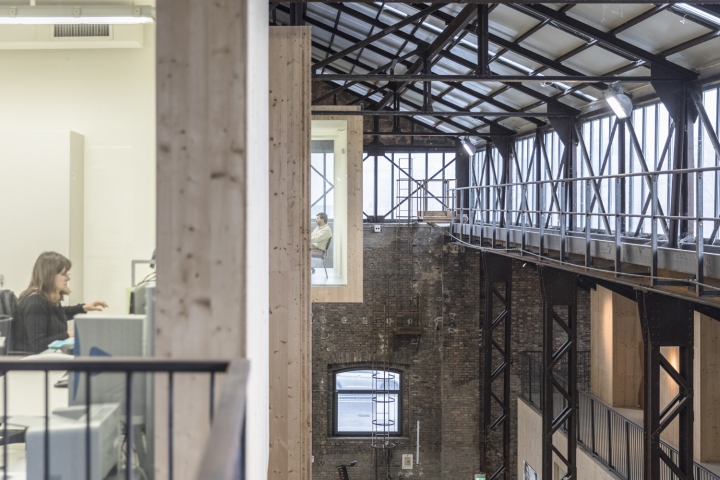
Close to the Ferrovie dello Stato central railway station in Reggio Emilia, Italy, the old “Officine Righi” tells the story of an ever-shifting production focus: from rolling stock to weapons, from war materials to aircraft, and from there back to rolling stock and industrial equipment. Initially a small complex with less than a hundred workers, in over forty years it expanded to a plant with more than eleven thousand employees. It functioned in times of peace and war and in only a decade it endured both a bombing by the Allies and a shutdown caused by a class conflict that led to a mass layoff. Unable to survive an economic crisis, it finally closed in early 2000.
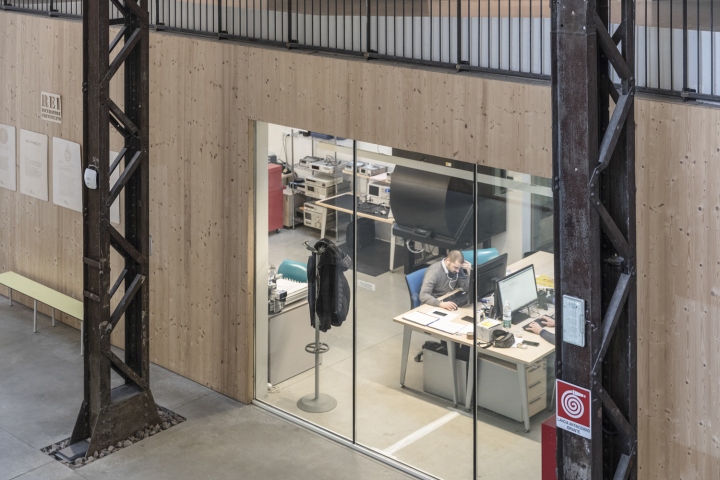
Considering the smells and sounds of machines and labor embedded in its memory and its walls, the refurbishment project recognizes and recovers the core beauty of the dilapidated building, subdividing the spaces through distinctive modules that are independent in structural, thermal and material terms. Thus, the building’s industrial heritage and historical significance is reclaimed while adjusting to contemporary requirements, turning a deteriorated area into a public space for the community and a site for relentless exploration of new ways of manufacturing.
Designed by Andrea Oliva Architetto
Photography by Laurian Ghinitoiu
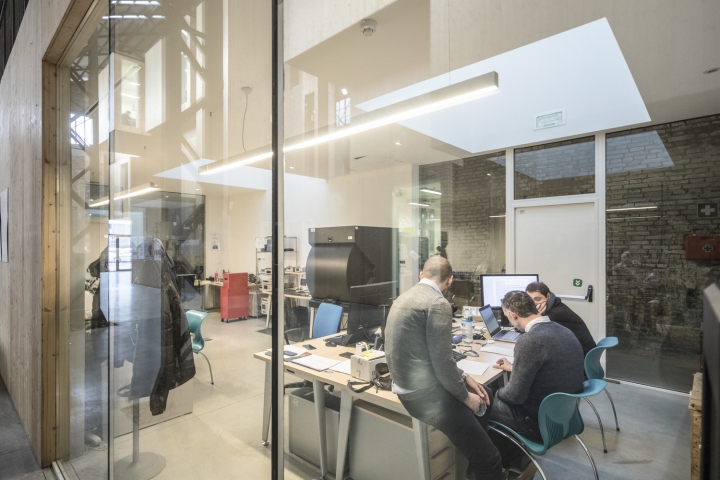
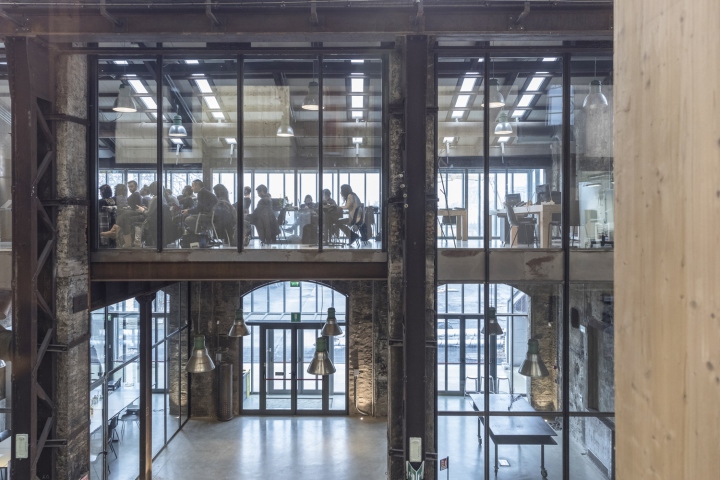
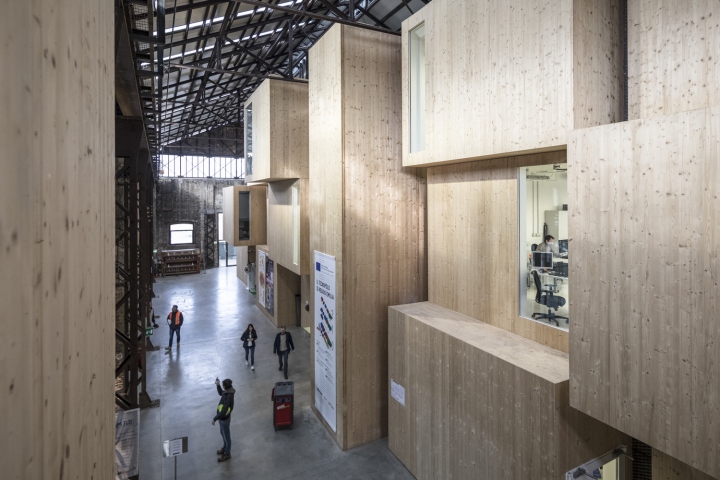
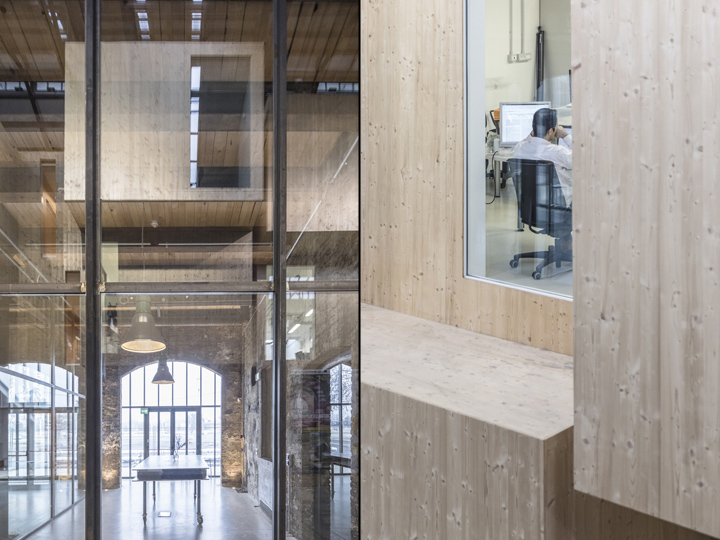
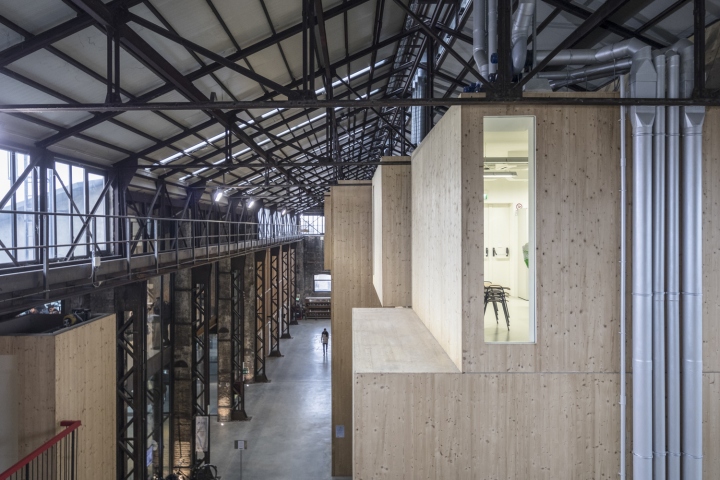
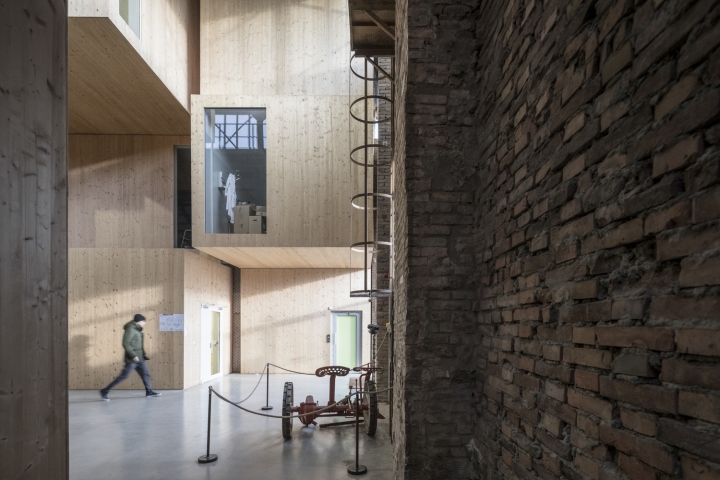
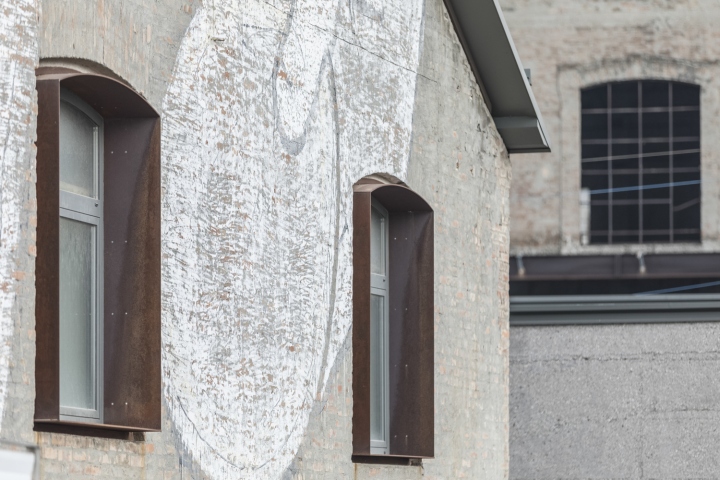
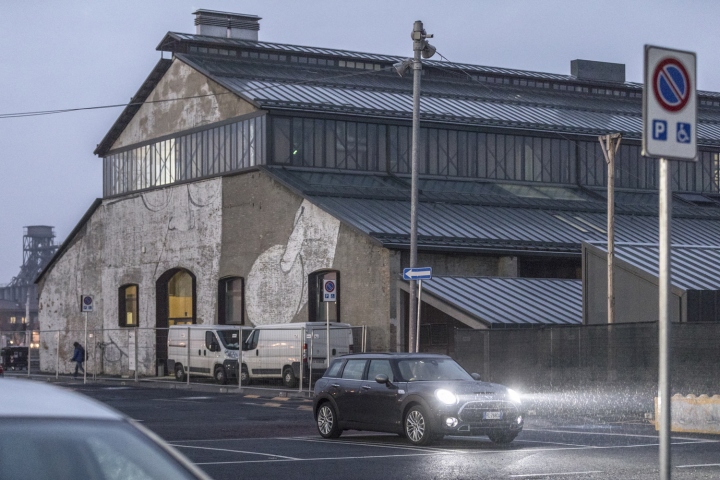
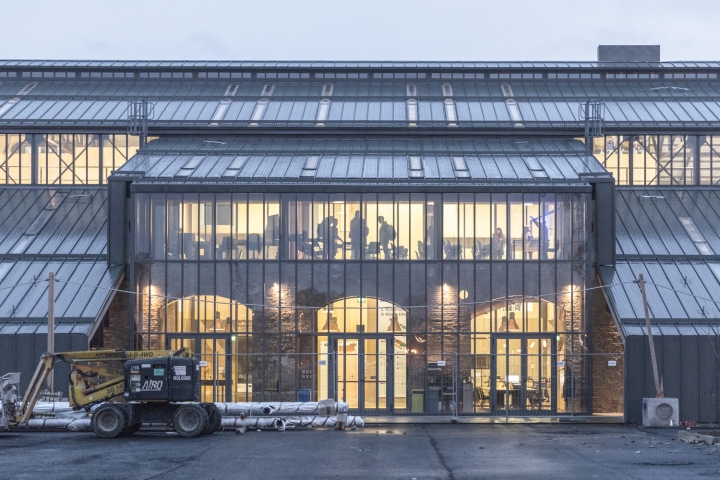
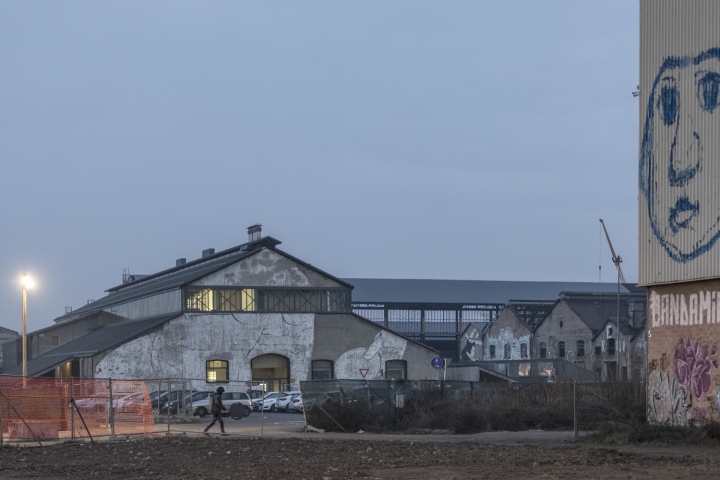
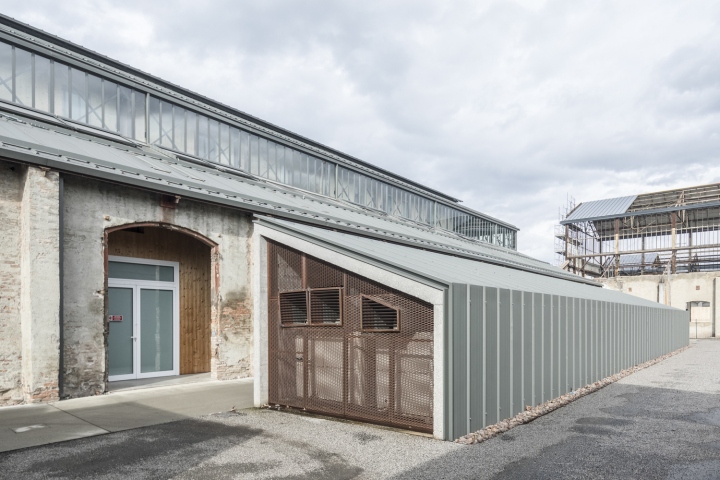
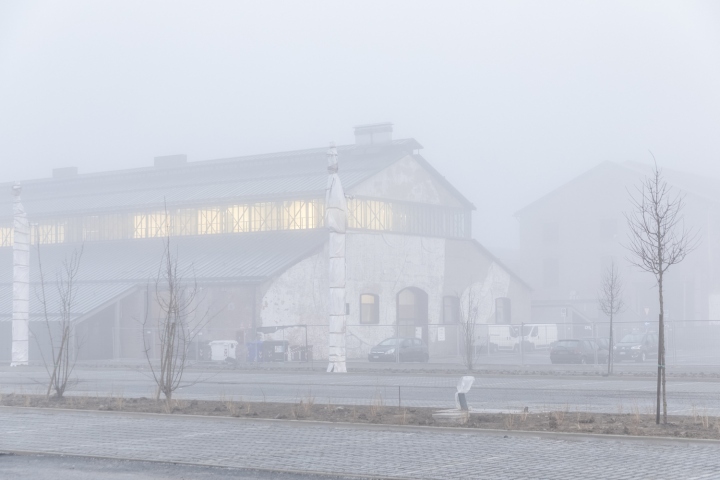
https://www.archdaily.com/890189/new-forms-of-industry-shed-number-19-by-andrea-oliva-architetto


















